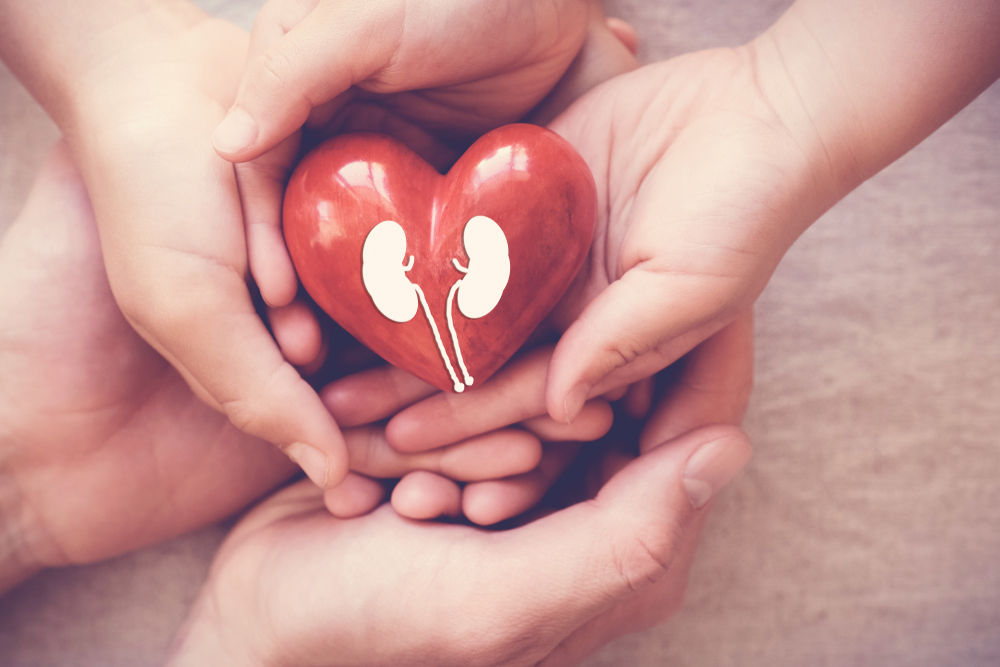What are the Signs and Symptoms of Relationship OCD?

Strong 8k brings an ultra-HD IPTV experience to your living room and your pocket.
Relationships are a cornerstone of human connection, but for some individuals, the joy of being in a relationship is overshadowed by persistent doubts, fears, and anxieties. This phenomenon is often referred to as Relationship Obsessive-Compulsive Disorder (ROCD), a subtype of Obsessive-Compulsive Disorder (OCD).
ROCD can severely impact one’s ability to maintain healthy relationships, leading to emotional distress and confusion. Understanding the symptoms of Relationship OCD is crucial for identifying the condition and seeking appropriate help. In this blog, we’ll explore the signs, symptoms, and potential treatments for ROCD, and how a well-known psychiatric clinic in Texas can provide the support needed to overcome this challenging condition.
What is Relationship OCD?
Relationship OCD is a form of OCD where individuals experience intrusive thoughts, doubts, and fears about their romantic relationships. These thoughts often revolve around whether they are with the "right" partner, whether they truly love their partner, or whether their partner loves them. Unlike typical relationship doubts, which are occasional and manageable, ROCD involves persistent and distressing obsessions that can consume a person’s thoughts and interfere with their daily life.
People with ROCD may engage in compulsive behaviors to alleviate their anxiety, such as constantly seeking reassurance from their partner, analyzing their feelings, or comparing their relationship to others. These behaviors, however, only provide temporary relief and often exacerbate the underlying anxiety.
Common Signs and Symptoms of Relationship OCD
Recognizing the symptoms of Relationship OCD is the first step toward addressing the issue. Here are some of the most common signs:
1. Intrusive Thoughts About the Relationship
Individuals with ROCD often experience unwanted, intrusive thoughts about their relationship. These thoughts may include:
- Doubts about whether they truly love their partner.
- Fears that their partner doesn’t truly love them.
- Concerns about whether their partner is "the one."
- Worries about compatibility or long-term suitability.
These thoughts are often irrational and disproportionate to the reality of the relationship, but they feel incredibly real and distressing to the person experiencing them.
2. Constant Need for Reassurance
A hallmark of ROCD is the compulsive need for reassurance. This may manifest as:
- Repeatedly asking their partner if they love them.
- Seeking validation from friends or family about the relationship.
- Analyzing past interactions or conversations to confirm their partner’s feelings.
While seeking reassurance can provide temporary relief, it often reinforces the cycle of anxiety and doubt.
3. Overanalyzing Feelings
People with ROCD may obsessively analyze their emotions and physical reactions to their partner. For example:
- Questioning whether they feel "enough" love or attraction.
- Interpreting normal fluctuations in emotions as signs of incompatibility.
- Overthinking moments of doubt or discomfort.
This hyper-focus on feelings can create a distorted perception of the relationship.
4. Comparing the Relationship to Others
ROCD sufferers often compare their relationship to others, whether real or idealized. They may:
- Feel envious of other couples who appear happier or more compatible.
- Worry that their relationship doesn’t measure up to societal standards.
- Fantasize about being with someone else, even if they are committed to their current partner.
These comparisons can fuel feelings of inadequacy and dissatisfaction.
5. Fear of Making the Wrong Decision
A common symptom of ROCD is an overwhelming fear of making the wrong decision about the relationship. This may include:
- Worrying about the long-term consequences of staying in the relationship.
- Fearing regret or missed opportunities if they stay with their partner.
- Feeling paralyzed by the thought of ending the relationship.
This fear can lead to indecision and emotional turmoil.
6. Compulsive Behaviors
To cope with their anxiety, individuals with ROCD may engage in compulsive behaviors, such as:
- Repeatedly checking their partner’s social media for signs of disinterest.
- Mentally reviewing past interactions to assess their partner’s feelings.
- Avoiding situations or conversations that trigger their doubts.
These behaviors are attempts to gain control over their anxiety but often worsen the problem.
7. Emotional Distress
The constant cycle of obsessions and compulsions can take a toll on emotional well-being. Common emotional symptoms include:
- Anxiety and panic attacks.
- Depression or feelings of hopelessness.
- Guilt or shame about their thoughts and feelings.
Difficulty concentrating or focusing on other aspects of life.
How ROCD Differs from Normal Relationship Doubts
It’s important to distinguish between ROCD and normal relationship doubts. Everyone experiences doubts or concerns in their relationships from time to time. However, ROCD is characterized by the intensity, frequency, and persistence of these thoughts. Unlike normal doubts, which are manageable and don’t significantly impact daily life, ROCD can consume a person’s thoughts and interfere with their ability to function.
For example, someone with ROCD might spend hours analyzing a single interaction with their partner, whereas someone with normal doubts might briefly consider the issue and then move on. Additionally, ROCD often involves irrational fears and exaggerated concerns that are not based on reality.
The Impact of ROCD on Relationships
ROCD can strain even the strongest relationships. The constant doubts and need for reassurance can create tension and frustration for both partners. Over time, this can lead to:
- Decreased intimacy and connection.
- Miscommunication and misunderstandings.
- Resentment or feelings of inadequacy.
- Potential breakdown of the relationship.
It’s important to note that ROCD is not a reflection of the relationship itself but rather a manifestation of the individual’s anxiety and OCD tendencies.
Seeking Help for Relationship OCD
If you or someone you know is experiencing the symptoms of Relationship OCD, it’s essential to seek professional help. ROCD is a treatable condition, and with the right support, individuals can learn to manage their symptoms and build healthier relationships.
Treatment Options for ROCD
- Cognitive Behavioral Therapy (CBT): CBT is one of the most effective treatments for ROCD. It helps individuals identify and challenge their irrational thoughts and develop healthier ways of thinking and behaving.
- Exposure and Response Prevention (ERP): ERP is a specific type of CBT that involves gradually exposing individuals to their fears and teaching them to resist the urge to engage in compulsive behaviors.
- Medication: In some cases, medication such as selective serotonin reuptake inhibitors (SSRIs) may be prescribed to help manage anxiety and OCD symptoms.
- Couples Therapy: Couples therapy can be beneficial for addressing the impact of ROCD on the relationship and improving communication and understanding between partners.
How a Well-Known Psychiatric Clinic in Texas Can Help
For those struggling with ROCD, seeking help from a reputable mental health provider is crucial. A well-known psychiatric clinic can offer specialized care and support tailored to the unique needs of individuals with ROCD. These clinics often have experienced therapists and psychiatrists who are trained in treating OCD and related disorders.
At a psychiatric clinic in Texas, you can expect:
- Comprehensive assessments to accurately diagnose ROCD.
- Personalized treatment plans that address your specific symptoms and needs.
- Access to evidence-based therapies, such as CBT and ERP.
- Supportive and compassionate care in a safe and confidential environment.
Conclusion
Relationship OCD can be a challenging and distressing condition, but it’s important to remember that help is available. By recognizing the symptoms of Relationship OCD and seeking professional support, individuals can break free from the cycle of doubt and anxiety and build healthier, more fulfilling relationships. If you or a loved one is struggling with ROCD, consider reaching out to a well-known psychiatric clinic in Texas to begin the journey toward healing and recovery. With the right treatment and support, it’s possible to overcome ROCD and enjoy the love and connection you deserve.
Note: IndiBlogHub features both user-submitted and editorial content. We do not verify third-party contributions. Read our Disclaimer and Privacy Policyfor details.






